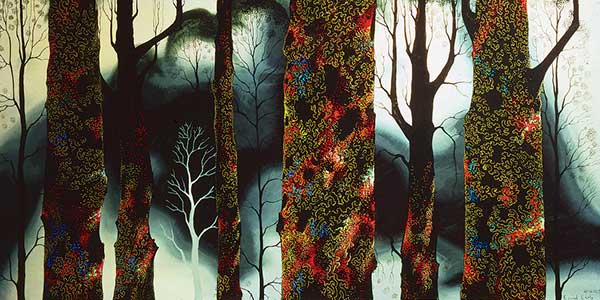Subtotal: $
Checkout-

Editors’ Picks: “The Cult of Smart”
-

Editors’ Picks: “The Utopians”
-

Editors’ Picks: “The Lincoln Highway”
-

Casa de Paz
-

The Pilsdon Community
-

Forum: Letters from Readers
-

Nonexistence Does Not Scare Me
-

Toyohiko Kagawa
-

Covering the Cover: Beyond Borders
-

Choosing America
-

Church as Sanctuary and Shelter
-

Northern Ireland’s New Troubles
-

When Migrants Come Knocking
-

The Florentine Option
-

Three Kants and a Thousand Skulls
-

The End of Rage
-

Telling a Tale of Two Fathers (Video)
-

Home Is Not Just a Place
-

The Quest for Home
-

In Search of Lost Fig Trees
-

Child of the Stars
-

Refugee Letters
-

Life in Zion
-

How to Run a Cemetery
-

Integrity and the Future of the Church
-

Daring to Follow the Call
-

Poem: “For the Celts”
-

Poem: “Wreathmaking”

Next Article:
Explore Other Articles:
This poem was a finalist for Plough’s 2021 Rhina Espaillat Poetry Award.
A dark, dictated famine made by war.
Small fires, for warmth, lit up the towns; canals
blockaded by command froze up, as if
to make a point. The Dutch began to starve.
They gnawed on sugar beets and tulip bulbs.
Out walking here, in Naarden’s ancient woods,
I see a stand of trees made strange by war.
Bullets have signed the bark, their wounds a mad
and modern furioso. No Arden here.
And in the rows of trees, a few grow straight
but only for a foot or two, then veer
off east or west, continuing to rise
within a different column of air as if
an origami fold had given them
a surreal twist. These trees were cut for fuel
but over seven decades grew again.
Time is simple for a tree, it hides
its rings inside, a strange geometry
by which a rise inscribes itself as round.
The reckoning of feet or yards remains
visible, as though the tree might be
a giant wooden ruler marking years.
These limping trees look frightened, almost as if,
having seen something terrible, they tried
to take a step—they tried to walk, or run.
Three-quarters of a century is long,
even if less long for trees, which hold
their winters close, and imperceptibly, rise.
They never will grow straight now, yet they grow.
Watch Susan de Sola read her poem at the first annual Rhina Espaillat Poetry Award ceremony.

Eyvind Earle, Jeweled Trees, oil, 1999 © 2021 Eyvind Earle Publishing. Used by permission.

Susan de Sola is a winner of the Frost Farm Prize and the David Reid Poetry Translation Prize. Her poems have appeared in many publications, such as the Hudson Review and PN Review. Her collection, Frozen Charlotte, was published recently by Able Muse Press. She holds a PhD in English from Johns Hopkins University and has been a faculty member at the West Chester Poetry Conference. A native New Yorker, she lives near Amsterdam with her family.
Already a subscriber? Sign in
Try 3 months of unlimited access. Start your FREE TRIAL today. Cancel anytime.





































